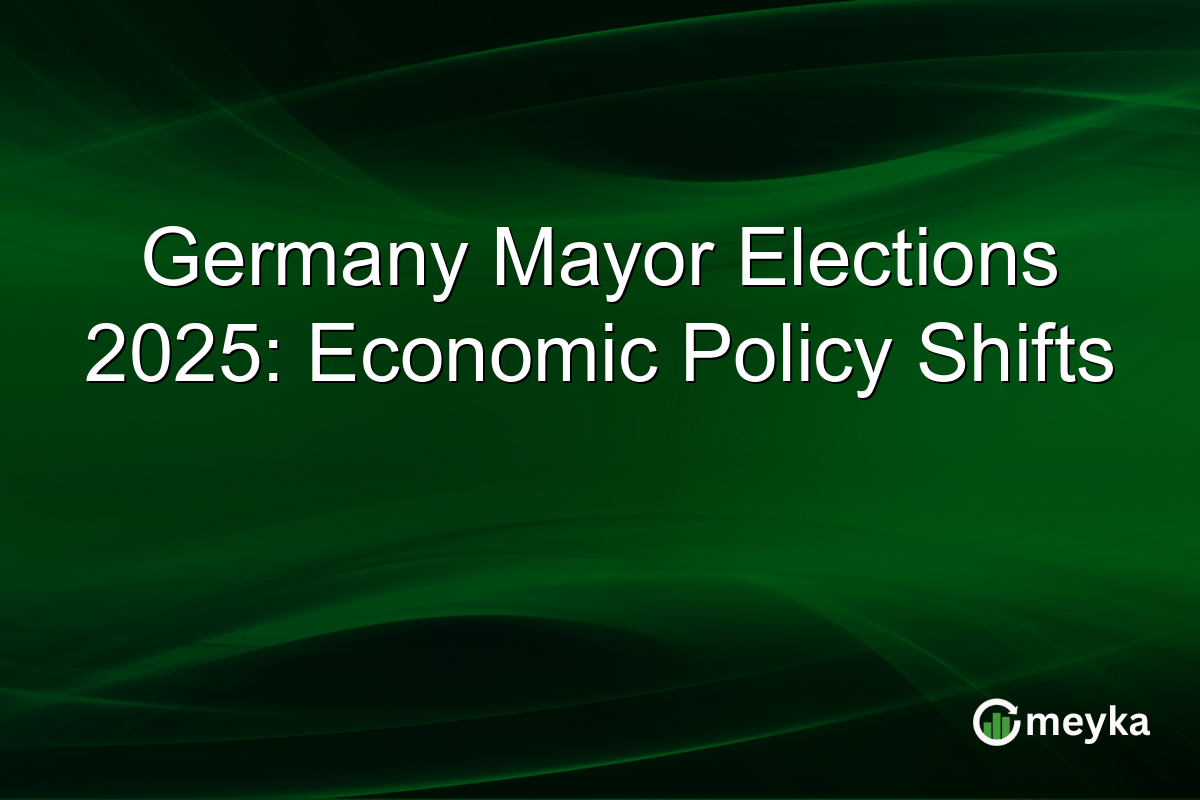Germany Mayor Elections 2025: Economic Policy Shifts
The 2025 mayor elections in Germany are drawing significant attention, especially with the rise of female mayors. These changes are shaping economic policies across numerous cities. As local governments transition, both business policies and regional development strategies are undergoing transformations. This article examines the potential economic impact of these elections, emphasizing the influence of new leadership.
The Rise of Female Mayors in Germany
In 2025, there’s a notable increase in the number of female mayors elected across major German cities. This shift is sparking interest as these leaders bring fresh perspectives to local governance. Discussions around ‘bürgermeisterin’ are trending online, highlighting the importance of gender representation in politics. This leadership change is expected to drive innovative business policies aimed at regional development. Female mayors are prioritizing sustainable growth and public-private collaborations, potentially boosting economic prospects. On social media platform X, the hashtag #GermanyWomenLeaders2025 is gaining traction, reflecting public excitement around this change.
Economic Policies Under New Leadership
The new mayors are set to implement policies focusing on economic growth and regional development. There’s an emphasis on fostering public-private partnerships that could leverage local resources efficiently. These leaders are advocating for policies that support small and medium enterprises (SMEs), vital for Germany’s economic fabric. Expect initiatives that enhance business environments and attract investments, significantly impacting local economies. For more details, check this article from CNBC on Germany’s evolving economic policies: https://www.cnbc.com/2025/10/10/germany-female-mayors-and-economic-policies-trending.html’ rel=’nofollow’>Germany’s Female Mayors and Economic Policies.
Impact on Business and Regional Development
Germany’s local government news suggests substantial shifts in regional economic policies due to the recent elections. New mayors are pushing for infrastructural improvements and digital transformation, which are expected to accelerate business development. Leaders focus on creating job opportunities and enhancing local supply chains, which can stabilize regional economies. These changes are likely to foster a competitive atmosphere for businesses, encouraging innovation at the municipal level. Reuters provides insights into how these regional strategies are being shaped post-elections: https://www.reuters.com/world/europe/german-local-elections-business-2025-10-10′ rel=’nofollow’>German Elections and Business.
Public-Private Investment Strategies
Newly elected mayors are keen on developing solid public-private investment strategies. By collaborating with private enterprises and focusing on sustainable practices, they aim to drive long-term economic health. These strategies are pivotal in addressing urban challenges such as infrastructure upgrades and green initiatives. By fostering innovation, public-private partnerships can unlock new economic opportunities, enhancing Germany’s regional competitiveness. Bloomberg explores these partnership impacts further: https://www.bloomberg.com/news/articles/2025-10-10/germany-mayors-election-impact-on-business’ rel=’nofollow’>Germany Mayors and Business Impact.
Final Thoughts
The 2025 German mayor elections herald a new era of economic policy focus. With an influx of female leaders, there is optimism about innovative strategies in business and regional development. By prioritizing sustainable growth and public-private partnerships, these mayors are setting a foundation for robust regional economies. Their approach could transform Germany’s local government landscape, driving economic vitality and fairness across cities. As these policies unfold, stakeholders should closely monitor their impact on local and national stages.
FAQs
The elections will likely lead to modernized economic policies focusing on sustainability, SME support, and enhanced public-private partnerships, fostering regional development.
Female mayors bring fresh perspectives, prioritizing inclusive policies and sustainable growth. Their leadership could reshape economic and social strategies across cities.
Businesses can expect supportive measures for innovation and growth, better infrastructure, and increased public-private investment aiding regional and economic competitiveness.
Disclaimer:
This is for information only, not financial advice. Always do your research.






